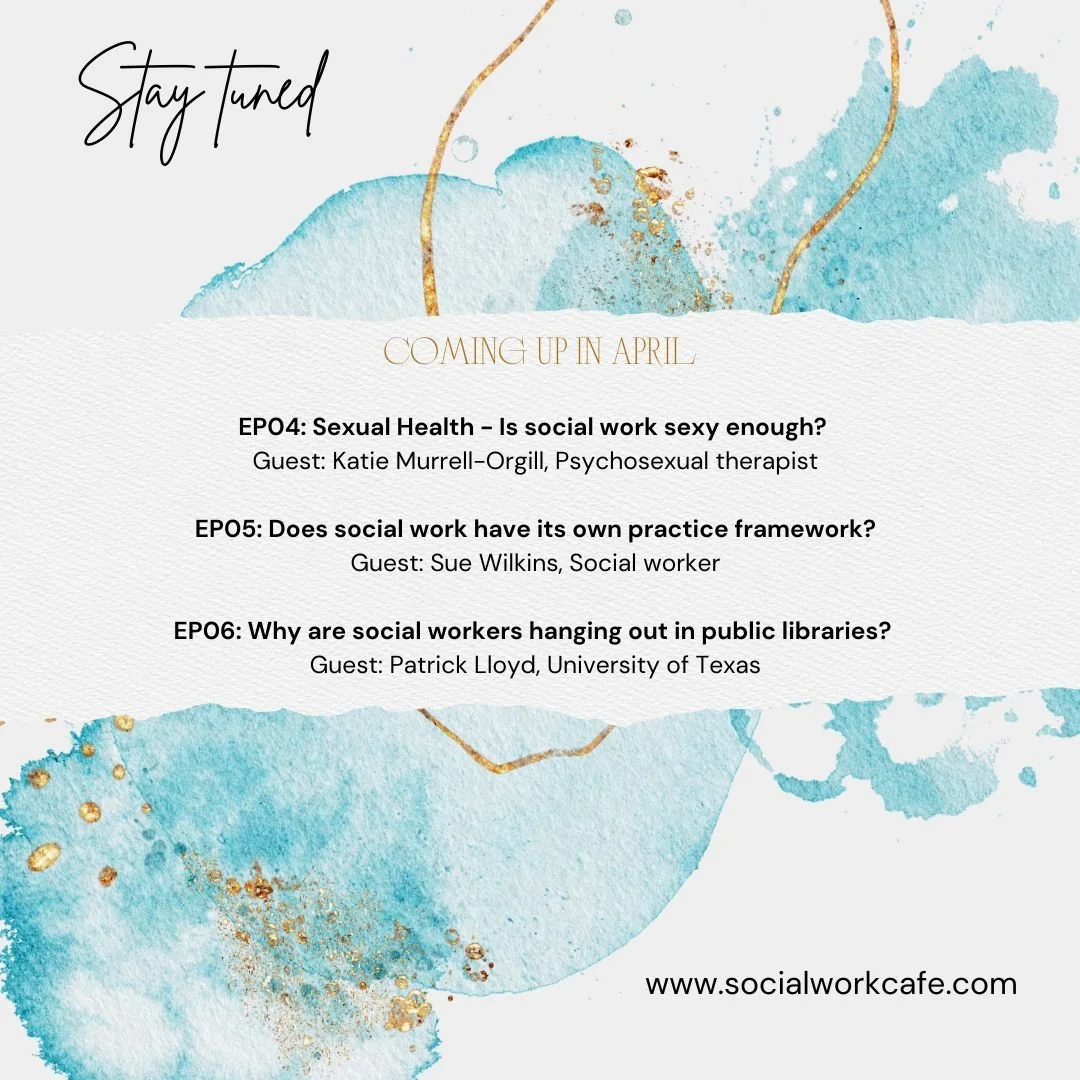Does anyone know what social workers do in the health sector?
Welcome back to my blog, where I share some highlights from the latest episode of the Social Work Café podcast.
It is such a pleasure for me to share episode 03 with you because the conversation is with a very dear friend of mine, Cat Crutchett.
Cat and I studied social work together, and we even travelled to North America some years ago for a little adventure (what happens in Vegas Cat).
In our first year of social work study, one of our favourite subjects was called Fields of Practice.
As you can probably guess from the title, it was all about the various fields in which social workers can be employed.
The one that struck Cat and me as the most interesting was the health sector.
While I was excited about the possibility of working in the health sector, I was concerned about what the literature had to say about the perceptions of social work.
You’ve probably seen some of these memes floating around before.
While funny, they really do have a good point, especially when it comes to stereotypes and misperceptions about social work.
The field of health is unfortunately not that different, where our colleagues and patients often do not understand what we do.
Having been in social work for a number of years now (not that I need reminding how many years exactly), I was curious to know whether those perceptions are finally shifting, which is why I was so keen to speak with Cat.
I often say to field placement students that once you get your foot in the door of public health, you can usually stay and move around.
Cat is definitely a great example of that, as she has been employed in a range of exciting roles, including on acute and stroke wards, community palliative support, and of course her current role as a senior social worker in renal.
Cat paints a really good picture of social work across health and how integral we can be in working alongside patients and families who are navigating complicated systems.
What I particularly love is how Cat describes social work in frontline positions but also management, policy, and clinical governance.
I got the impression that social workers are infiltrating every part of health.
Maybe that is how we get real social change in this world—just take over all of these systems from the inside!
While Cat shares her experiences of misperceptions regarding social work and how this remains an issue today, it is wonderful to hear that she is observing some positive shifts towards valuing our profession (even if people don’t entirely understand what we do...yet).
Some of this seems to be because medical and allied health professions are starting to appreciate how psychosocial needs impact someone’s health.
We can capitalise on that shift in perceptions by promoting the holistic and multidimensional perspective of social work in health.
Having said that, Cat makes a great point that sometimes misperceptions are not helped when social workers are their own worst enemies, especially when they downplay their own knowledge and skills.
Cat offers some great advice to social workers about becoming good at explaining social work on a regular basis as well as respectfully challenging misperceptions.
(Okay, maybe not quite like that perhaps).
While we may need to have a lot of conversations, which can become tedious, we do it because we are trying to serve our communities well.
When we promote social work, we increase the likelihood that people will reach out to us. So keep having those conversations wherever possible!
Her advice validates the central theme of season 01 for this podcast and leads nicely into Cat’s answer to the question: what is social work?
Cat starts by answering the question with a generic point about trying to improve people’s quality of life.
She then gets more specific with the following for the health context:
We’re a profession that works with patients and families to help identify how their physical health concerns are impacting all other parts of their lives and what resources both practical and psychological, they require to help cope with that.
I love this definition because it does not have heaps of complicated jargon.
It could work quite well when explaining social work to medical staff, but it might need to be shortened for the public.
What do you think? Would you make use of this definition?
It sounds like there is still a lot of work to do in health to promote social work, but I am incredibly hopeful about how perceptions are changing and what we can do to contribute to that change.
I also now think we need to coordinate ourselves better and infiltrate all levels of systems in order to take over the world.
Thanks for the inspiration Cat.
Social workers, assemble!
Dr. B
P.S. Well that’s it for March.
New episodes will be out in April.
In the meantime, you can listen to a couple of interviews I did recently.
The first is with the fabulous Vicki Shevlin of Social Work Sorted.
Click here to listen to our conversation about my PhD research and common experiences during the newly qualified period.
The second interview came out just this week and is with Professor Martin Webber, University of York.
He has a fabulous podcast called Social Work Research and in this episode we talk about my peer-reviewed article on sustaining professional identity.
(if the above links don’t work, click here to go to my media page).
See you back in the café in April.



